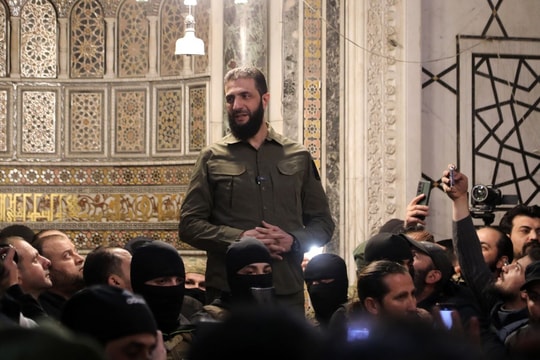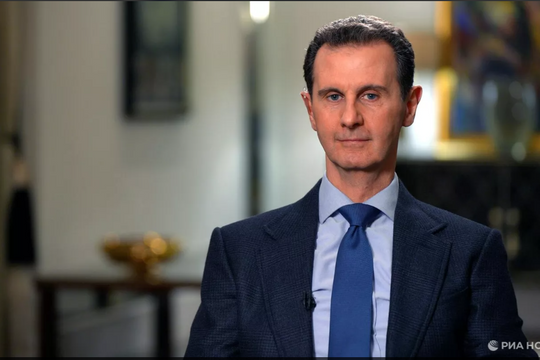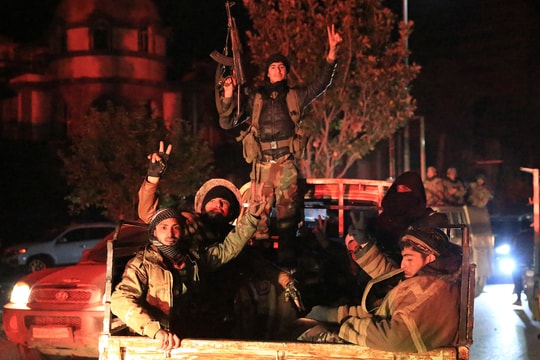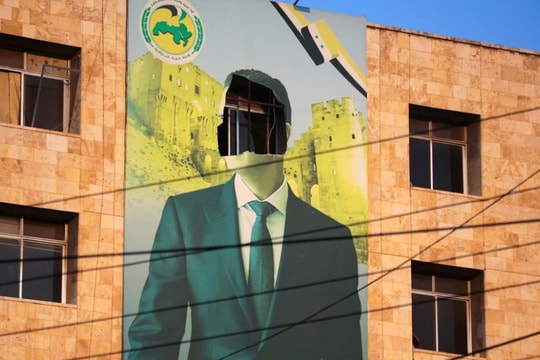Syrian people's attitudes towards the collapse of the "Assad empire"
The regime of former Syrian President Bashar al-Assad ruled for a quarter of a decade, but within just two weeks it collapsed at the hands of armed opposition forces.
At the 1,300-year-old Umayyad Mosque in central Damascus, red, white, black and green flags flutter. On the other side of the capital, the palace of former Syrian President Bashar al-Assad is burning.
The news anchor on December 8 read: “We inform you from the Syrian news channel about the victory of the great Syrian revolution, after 13 years of patience and sacrifice.” And on the streets, hundreds of people cheered and celebrated the shocking collapse of 50 years of family rule under President Bashar al-Assad.
After less than two weeks of fighting across northwest Syria, armed opposition groups quickly took control of the capital. Their presence appeared to have taken the regime by surprise, forcing Assad to declare his fall, peacefully transfer power, and seek asylum in Russia with his family.
“We are the happiest country in the world right now,” one man told CNN on his way to Damascus on December 8.
In a speech at the Umayyad Mosque on December 8, Abu Mohammad al-Jolani, the leader of Syria's main armed opposition group, Hayat Tahrir al-Sham (HTS), called the overthrow of the Assad regime "a victory for the entire Muslim nation."
"This is a country where if their rights are taken away, they will continue to demand them until they are restored," Jolani said, adding that HTS was freeing people held by the Assad regime. Their rapid move into the capital has surprised the people and the world.
Here is the timeline of the armed opposition's rise to power:

The first sign of what was to come in their attack and marked the first flare-up between the two sides in eight years.
At least 37 people were killed, according to opposition statements at the time – including government troops and allied militias. And rebels seized 13 villages, including the strategic towns of Urm al-Sughra and Anjara, as well as Base 46 – the Syrian regime’s largest military base in western Aleppo.
It was unclear at the time whether the attacks had any more significance. Rebel groups said they carried out the attacks in response to recent shelling by the Assad regime.
Three days later, the first city fell.
.jpg)
This is the first time rebels have set foot in Aleppo since government forces regained control in 2016. They have captured large areas of the city.
The Syrian army admitted its forces were withdrawing, saying “a large number of terrorists” had forced them to “carry out a redeployment operation”. They said reinforcements were on the way and government forces were preparing for a “counter-offensive”.
.jpg)
The city is strategically located at an important crossroads in western-central Syria, providing a direct supply route between Damascus and Aleppo.
President Assad's regime has held Hama for more than a decade, but on December 5, the Syrian army said it had to withdraw after rebels "infiltrated some areas of the city".
From there, the rebels accelerated their advance towards Homs.
.jpg)
Opposition forces continued to advance towards Damascus, capturing the city of Daraa with the support of rebel factions representing the Druze sect in the neighboring city of as-Suwaydah.
Government troops said they "redeployed" after the attack, with rebels attacking forces from both the north and south.
In the southern city of Homs, hundreds of people fled on the night of December 6, as rebel forces said they had reached the city walls.
.jpg)
After moving south for several days, HTS quickly took control of Homs.
On the evening of December 7, HTS said it had “fully liberated” the major city as Syrians tore down posters of Mr. Assad and burned them.
“We have liberated four Syrian cities in 24 hours: Daraa, Quneitra, Suwayda and Homs,” Lieutenant Colonel Hassan Abdul Ghani, a spokesman for the rebel group, said before they entered Damascus.
After the government troops left, people poured into the streets to celebrate.
.jpg)
Early on December 8, Syrian rebels declared the capital Damascus had been "liberated" after entering the city with almost no resistance from government troops.
Celebrating gunfire could be heard as news of Assad's escape from the capital spread. Footage shared on social media and verified by CNN showed similar scenes in Aleppo, which fell to rebels just over a week earlier.
Leader Jolani addressed the Syrian people from the Umayyad Mosque. He said: "This victory, my brothers, is the victory of the entire Muslim nation. This new victory, my brothers, marks a new chapter in the history of the region."
Russian state media soon confirmed that Mr Assad had sought asylum in Russia.






